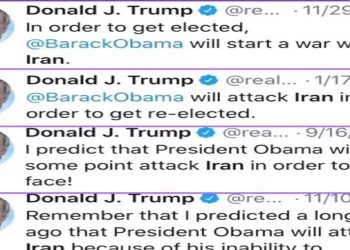In the 2023 Geography of Cryptocurrency report, Chainalysis ranked Pakistan the eighth country in grassroots cryptocurrency adoption. As a result, it has become one of the six CSAO (Central & Southern Asia and Oceania) nations in the top 10 rankings in the company’s index.
Chainalysis ranked each nation in its 2023 Global Crypto Adoption Index based on on-chain cryptocurrency activity and volume. To calculate the score, the figures were weighted by purchasing power parity (PPP) per capita and other relevant metrics that could provide an overview of national economic productivity and living standards.
Let’s explore the key findings of Chainalysis’ recent report, as well as its implications for Pakistan’s Muslim community.
Claiming the Eighth Spot in Crypto Adoption
According to Chainalysis’ 2023 Geography of Cryptocurrency study, Pakistan ranks eighth in the overall index, seventh in centralized value received and retail centralized value received, ninth in peer-to-peer (P2P) exchange trade volume, as well as 20th in both decentralized finance (DeFi) value received and retail DeFi value received.
Pakistan has achieved a prominent ranking in the index despite negative market trends. According to Chainalysis, grassroots crypto adoption fell in both Q1 2023 and Q2 2023 compared to the same quarters of the previous year. That said, there has been some recovery since late 2022, when FTX’s bankruptcy disrupted the market and negatively impacted investor sentiment. However, the current score is still very far away from Q2 2021’s all-time highs.
The only category that managed to remain above Q3 2020’s pre-bull market levels is lower-middle-income countries (LMI). Pakistan falls into this group, along with grassroots crypto adoption leader India. In these economies, the index’s score has grown in the surveyed period. Based on researchers’ analysis, this is an “extremely promising” trend. According to them, the economies of LMI nations are in the growth phase, featuring dynamic, expanding industries and populations. 40% of the world’s population resides in these nations, with many of them having undergone substantial economic development in the last few decades.
Based on Chainalysis’ findings, the primary driver behind Pakistan’s surging grassroots crypto adoption is the need to preserve wealth and mitigate the negative impacts of inflation and national currency devaluation. At the same time, according to experts asked by the company, Pakistan-based businesses utilize stablecoins to hedge against inflation-related risks when importing products from abroad. Interestingly, the country achieved such a prominent position in the index despite the fact that crypto trading is currently formally banned in the country.
Catering to Pakistan’s Muslim Community
Based on Chainalysis’ report, grassroots crypto adoption has taken off in Pakistan. However, considering the size of the nation’s Muslim population, a new aspect has to be taken into account to further accelerate this promising trend. In fact, Pakistan has the largest number of Islam followers in the world, with over 240 million people or nearly 96.5% of the citizens.
Despite the sheer size of Pakistan’s Muslim community, its members have had no Sharia-compliant access to cryptocurrencies and the blockchain market. As a result, the nation’s citizens have been exposed to haram activity like riba and unethical business practices while interacting with decentralized applications (dApps).
To tackle this challenge, Islamic Coin has created a Sharia-compliant, ethics-first, and blockchain-based financial ecosystem. Tailored to suit the needs of Muslim populations across Pakistan and other nations, the project’s mission is to provide this community with access to a financial instrument of the Digital Age that facilitates seamless transactions between users.
Powered by the community-run, high-throughput, and EVM-compatible HAQQ Chain, Islamic Coin supports innovation and is committed to contributing towards philanthropic efforts. While $ISLM meets all the criteria of a halal asset, 10% of the ethics-first financial ecosystem’s native currency’s issuance is automatically deposited into the Evergreen DAO. Governed together by the Sharia Board and community members in a decentralized manner, these funds are allocated to fund Islam-related venture investments, charity donations, and other initiatives that create direct value for users.
Islamic Coin achieves Sharia compliance via two layers of approval. First, the community votes on whether to whitelist dApps, allowing them to launch within the HAQQ ecosystem. For full compliance, developers must also submit their applications to the Sharia Board for evaluation.
In June 2022, the world’s leading Muslim authorities issued a Fatwa for Islamic Coin. The scholars, renowned for their extensive experience in Islamic finance, classified $ISLM as a digital asset within the cryptocurrency and blockchain landscape that aligns with Islamic principles. While this provides credibility for the project, Islamic Coin also managed to defy the bear market and raise $400 million of funding in total from investors.
According to Mohammed Al Kaff Al Hashmi, Islamic Coin’s Co-Founder, Islamic Coin is more than a cryptocurrency.
“It is a 360-degree financial ecosystem that aims to integrate itself into a wide range of aspects related to our daily lives. Basically, these can range from anything from healthcare services to social media interactions. Serving as a versatile tool for finance, Islamic Coin appeals to both the Muslim community and also to anyone who is interested in an ethics-first financial system,” said Al Hashmi. “In addition to advancing the principles of Islamic finance, our mission is also to showcase how we can leverage them to solve modern economic challenges. That’s why we are inviting everyone across all communities and faiths worldwide to participate,” he added.
The Road to Ethics-First Finance
Islamic Coin’s ethics-first, Sharia-compliant financial ecosystem can act as a catalyst for grassroots crypto adoption in Pakistan and beyond. By providing a seamless way to enter the digital asset space without facing haram activity, more Muslims can join the industry and take advantage of its benefits.
It seems the project is right on track to fulfilling its mission. Besides collecting $200 million in a July funding round, Islamic Coin has recently launched $ISLM, which was listed on the KuCoin digital asset exchange. However, these are only a few items on the project’s roadmap. In fact, Islamic Coin has ambitious plans for the future, which include an $ISLM-backed Swiss payment card, crypto-fiat processing services, a decentralized identity solution, and a gold-pegged stablecoin created in partnership with leading UAE-based financial institutions.































